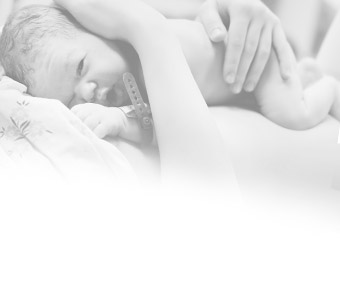What is birth injury medical negligence?

7 out of 1,000 pregnant women in U.S. experienced pregnancy and childbirth complications.
Birth injury medical negligence occurs when doctors, nurses, or other health care professionals do not meet a high standard of care during delivery, leading to complications during birth.
Medical professionals are educated and trained to act appropriately in difficult situations to keep babies and mothers safe. Not acting promptly in emergency situations can cause severe short- and long-term birth injuries.
Medical negligence can occur before, during, and/or shortly after the birth of a child.
Medical negligence during pregnancy
Doctors may commit medical negligence during pregnancy by not diagnosing or treating health complications affecting the mother and/or the baby. There are several conditions that put the mother and baby at a higher risk of complications during childbirth.
Conditions that may lead to complications during birth if not treated/controlled include:
- Diabetes
- Maternal Infection
- Preeclampsia (high blood pressure)
- Obesity
If not treated, these conditions can lead to serious complications during birth and may cause a lifelong birth injury. Failing to screen, diagnose, and treat these conditions may be considered medical negligence.
Medical negligence during delivery
Doctors, nurses, and other medical professionals can commit several acts of medical negligence in the delivery room.
Acts of medical negligence during childbirth include:
- Failing to detect fetal distress and/or properly monitor the baby’s heartbeat
- Failing to perform a medically necessary C-section (cesarean section)
- Improperly using forceps or vacuum delivery or failing to inform mother of their risks
- Pulling or twisting too hard on the baby as they exit the birth canal
All of these acts of medical negligence can result in direct harm to the mother and the baby. Birth trauma caused by negligence may cause a child to suffer from permanent brain damage.
Medical negligence shortly after birth
Birth injury medical negligence can still happen even after the child has been delivered. Once a child is born, medical professionals must monitor the baby and mother for any complications that may arise. Failure to do so may cause severe harm.
Acts of medical negligence shortly after birth include:
- Failing to control loss of the mother and/or baby
- Failing to diagnose and treat newborn jaundice
- Failing to monitor the baby’s vital signs
- Failing to treat the mother’s uterine ruptures and/or tears
All of these actions can lead to severe complications for the mother and child. If you believe your child suffered a birth injury due to medical negligence during childbirth, speak to one of our caring registered nurses today to learn more about next steps.
Types of birth injuries caused by medical negligence
Medical negligence during birth can cause a variety of different birth injuries. The type of injury can depend on the act of medical negligence and the severity of damage.
Common types of birth injuries caused by medical negligence include:
- Brain damage
- Intrauterine fetal demise
- Intraventricular hemorrhage
- Kernicterus
- Newborn cephalohematoma
- Newborn jaundice
- Periventricular leukomalacia
- Skull fractures
- Spinal cord injuries
Cerebral palsy is another condition often caused by birth injury medical negligence. Damage to the child’s brain before, during, or shortly after delivery can cause cerebral palsy. The type of cerebral palsy can depend on the area of the brain that is damaged.
Erb’s palsy may also be caused by birth injury medical negligence. Erb’s palsy develops when the brachial plexus (nerves around the shoulder) is damaged. Excessive pulling, twisting, or stretching of these nerves can lead to the condition.
Shoulder dystocia (when the shoulders get stuck after the head delivers) is a leading cause of Erb’s palsy. The medical team's actions or inactions during this complication can significantly contribute to harm.
Depending on the severity of the injury, the child may lose movement in the affected arm, hand, wrist, or shoulder. While many can fully recover, some babies may experience long-term or permanent problems due to Erb’s palsy.

The effects of birth injury medical negligence
Acts of birth injury medical negligence can lead to several short-term effects for both the mother and the baby.
Short-term effects
- Brain damage
- Intrauterine fetal demise
- Intraventricular hemorrhage
- Kernicterus
- Newborn cephalohematoma
- Newborn jaundice
- Periventricular leukomalacia
- Skull fractures
- Spinal cord injuries
- Blood loss
- Incontinence
- Vaginal tears
- High or low blood pressure
- Uterine tears
These short-term effects can be treated and often do not have long-lasting effects on the mother and baby. However, if left untreated, these complications can lead to more serious injuries or even death.
Long-term effects
- Brain damage
- Erb’s Palsy
- Spinal cord injuries
- Cerebral palsy
- Kernicterus
- Other birth injuries
- Chronic pain
- Incontinence
Brain damage during birth is irreversible and can greatly affect a child’s overall development. Birth trauma caused by medical negligence can lead to many physical, neurological, behavioral, and cognitive issues that have a lifelong impact on a child.
The events of a traumatic birth experience can also greatly impact a mother’s mental well-being. Mothers affected by birth injury medical negligence may experience post-traumatic stress disorder (PTSD), depression, and/or anxiety.
If you experienced any of these complications during the birthing process, you may be able to file a medical malpractice lawsuit against negligent medical providers. Get started today with a free case review.
Treatment for birth injuries caused by medical negligence
Birth injury cases caused by medical negligence can be managed with a variety of treatment options depending on your child’s symptoms.
Common birth injury treatment options include:
- Aquatic therapy
- Assistive devices
- Medication
- Mobility aids
- Occupational therapy
- Physical therapy
- Speech therapy
- Surgery
- Transportation equipment
Unfortunately, many families are not prepared for the medical expenses for treating conditions caused by birth injury medical negligence.
Additionally, a study from Massachusetts General Hospital found 40% of families struggle to pay for costs associated with their disabled child’s care.
Families should not be responsible for paying for treatment for injuries that could have been prevented with quality care during delivery. Thankfully, there are several birth injury financial support options available for affected families.
Legal compensation from a birth injury lawsuit can help you pay for the treatment your child deserves. According to a study from the TDC Group, the average medical malpractice payout for a child under one month old is $1 million. Compensation from a birth injury claim can greatly ease the emotional and financial burdens placed on families affected by medical negligence.
Cerebral palsy treatment is not focused on curing or fully correcting a child’s condition but is focused on nurturing a child’s development to encourage an independent life.
Take legal action against birth injury medical negligence
Health care providers such as doctors, nurses, and other medical professionals have an obligation to give quality medical care in the delivery room. Small mistakes can have great consequences and may be considered birth injury medical negligence.
Complications caused by medical negligence during childbirth can affect both the baby and mother for the rest of their lives. Treatment for birth injuries can help manage these conditions, but can be very costly for families.
No family should have to pay for an injury caused by medical negligence. Thankfully, you can pursue financial compensation through a medical malpractice claim if your child’s birth injury was preventable.
If you believe your child suffered from a birth injury caused by medical negligence, you maybe able to work with a birth injury lawyer at a skilled law firm. Get a free case review today to get started.




